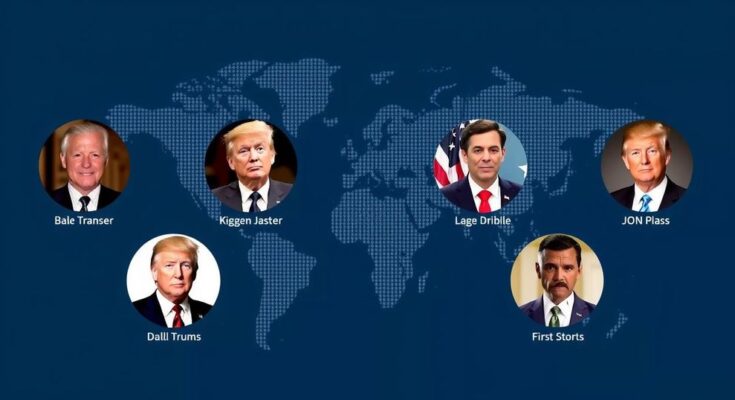The analysis delves into potential upheavals in U.S. foreign policy with Trump’s cabinet choices, particularly highlighting concerns about the future of NATO, U.S. support for Ukraine, and the broader implications for international alliances. Critics argue that Trump’s transactional focus may derail established diplomatic protocols, leading to a potential destabilization of global security structures, all while raising fears of renewed arms races among allied nations.
As President-elect Donald Trump appoints Fox News personality Pete Hegseth as his new Secretary of Defense, reactions from seasoned military commanders arrive swiftly, echoing skepticism. They worry that Trump’s drive for loyalty in leadership positions may risk sidelining seasoned expertise in favor of a singular, polarized viewpoint. This shift, they caution, could herald a drastic change in U.S. foreign policy, veering away from the precedent set by both Democratic and Republican administrations. Trump’s “America First” ideology seems poised to reshape America’s role on the global stage, promoting a vision where the U.S. distills complex international relationships into mere transactions. This transactional philosophy raises alarms in Europe and Asia, where longtime allies might question America’s commitment to longstanding treaties and mutual defense agreements, potentially inviting self-defense strategies they once avoided. Promises of deep cuts to foreign aid, such as support for Ukraine against Russia, resonate unsettlingly with figures like Trump’s former national security adviser John Bolton, who articulates a haunting concern: “If I were Ukraine, I’d be very worried.” Taiwan too, once shielded under America’s protective mantle, now faces uncertainty as Trump’s approach may alter the longstanding ambiguity about U.S. military support. With whispers of NATO’s possible dissolution and the potential rise of a new nuclear arms race, the ramifications of Trump’s foreign policy vision extend far beyond mere headlines, conjuring images of a fractured global community where nations might scramble for their arsenals in a newfound race for security. This evolving landscape prompts a sobering reflection on the virtues of the established international order. Advocates for this order argue that it has been a crucial deterrent against large-scale conflict since World War II, underscoring that its unraveling could lead to chaos reminiscent of a dog-eat-dog world. In this shifting paradigm, America’s allies brace for the outcome of an administration determined to renegotiate the tenets of international relations. Will they maintain their trust in an increasingly transactional U.S., or will they be compelled to reassess their own security strategies, possibly even developing nuclear capabilities of their own to survive? As Trump steps into a command that promises to be anything but routine, the world holds its breath, watching to see whether this new direction can lead to national security or if it merely unravels hard-won stability.
The piece examines potential shifts in U.S. foreign policy under President-elect Donald Trump’s administration, particularly through the lens of his recent cabinet appointments. With Trump endorsing a transactional approach that challenges traditional alliances and treaties, military leaders from various backgrounds express profound concerns about the implications for global security. Key points of contention include Trump’s plans regarding NATO, U.S. support for Ukraine, and complications that may arise in the broader international arena with adversaries like Russia and China. The strategic history between the U.S. and its allies is tested as the narrative unfolds, reflecting America’s past commitments and the potential for isolationism reminiscent of pre-World War II sentiment. The article emphasizes the interconnectedness of global dynamics, warning that neglecting collaborative security measures could result in chaos and instability.
In summary, as Trump assembles a cabinet poised for significant policy shifts, the implications for U.S. foreign relations stir anxiety among military leaders and international partners. The potential for a more isolationist approach underscores the uncertainty of America’s commitment to its allies, echoing historical precedents that led to global tumult. As the international community watches closely, the unfolding narrative raises the stakes for national security and the balance of power across the globe. The overarching question remains: can America maintain its leadership role while renegotiating the very foundations of its foreign relations?
Original Source: www.cnn.com



